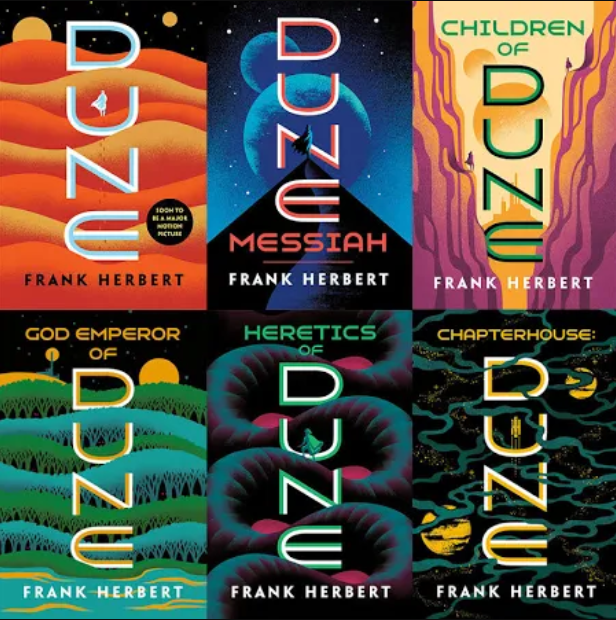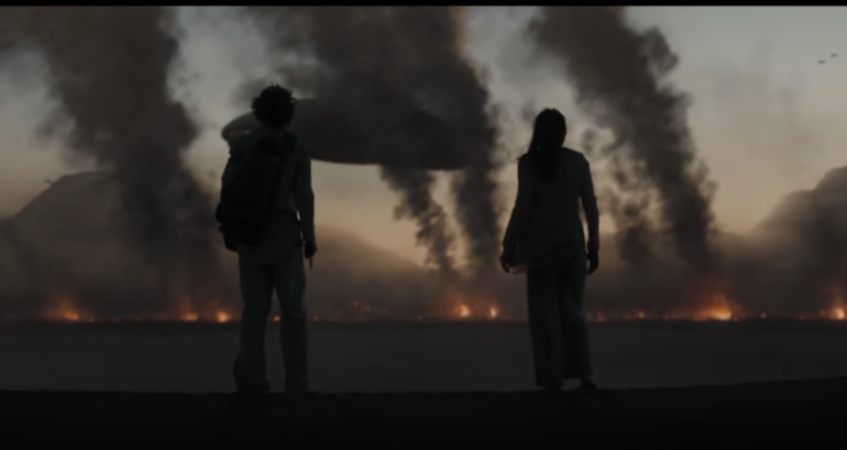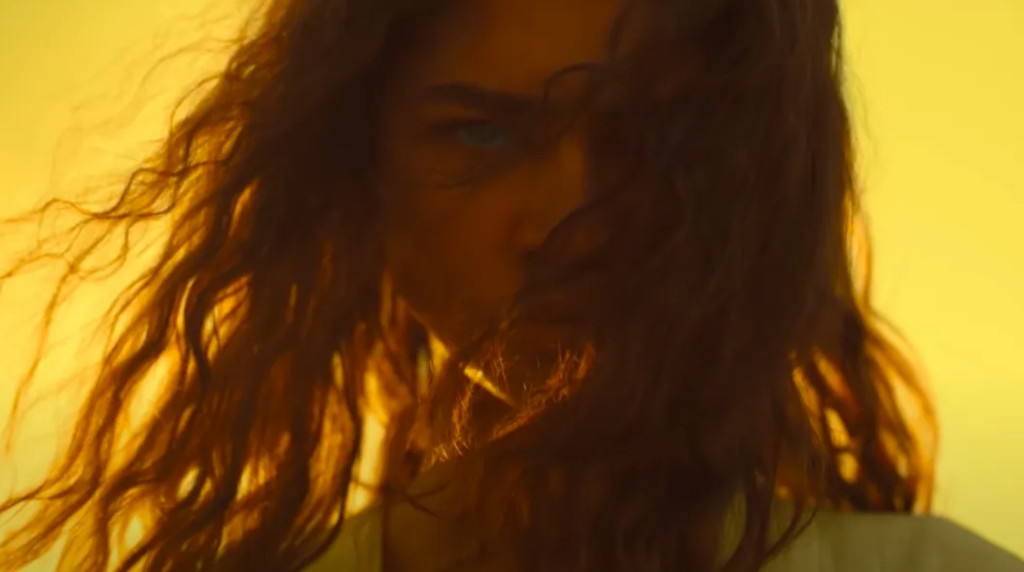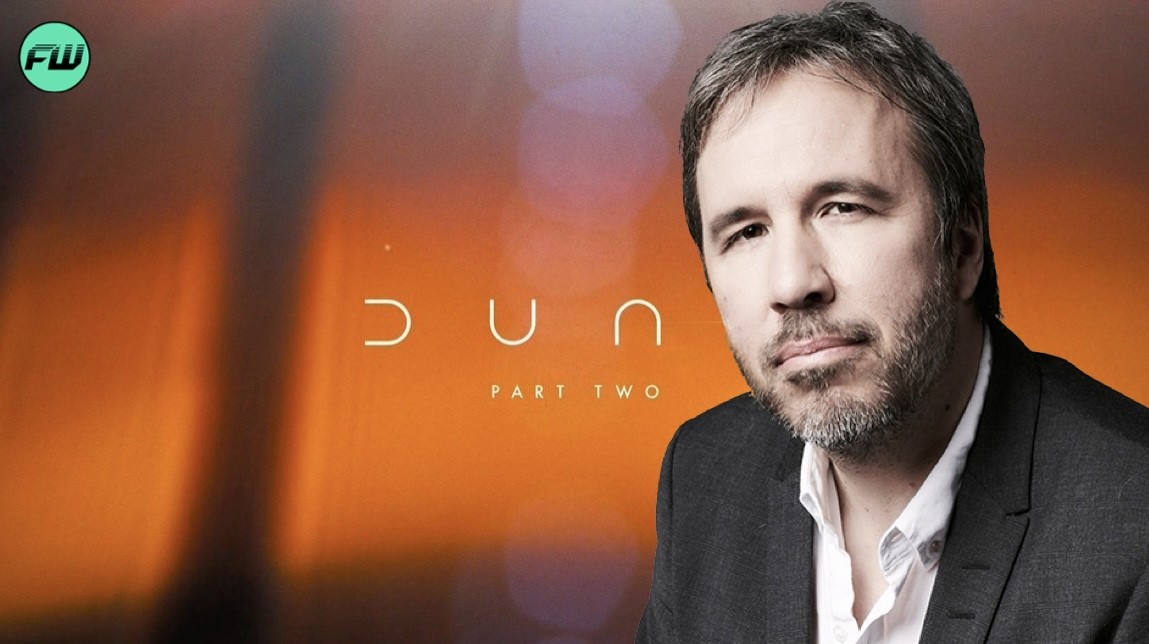In 1965, Frank Herbert set out to create a universe that would overwhelm any science fiction fan, and it took until 2021 for Denis Villeneuve to fully conceive what that universe would look like.
In all, there are 37 books depicting the Dune universe’s different houses and the clans within them. However, when you consider the original books penned by Frank Herbert personally, those are six–all mandatory reading for Dune fans.

The original six Dune books create the foundation and craft Herbert’s vision for his fantasyland–and Denis Villeneuve should adapt all of them. It’s been 55 years since Frank Herbert put pen to paper detailing the plight of three great houses battling for the captivity of one planet and its sole resource, the Spice Melange.
So, what’s the big deal if Denis Villeneuve only adapts a trilogy? That’s the thing: It’s a big deal if he doesn’t! We need to explore that reason and rationale because those six books could be the foundation of something extraordinary in the world of science fiction and fantasy.
Here’s why…
A Truth Discovered

What you may not realize amid the cryptic voices, body shields, and milquetoast bald dudes is that Herbert’s books have a powerful ecological message. Dune is arguably the most important environmental fiction movie created in decades.
Fantastic movies have carried an ecological undertone, such as Annihilation, Interstellar, and Snowpiercer. But nothing has been like Dune. The trailer for Dune: Part Two begins with a cozy moment between Paul and Chani, envisioning the limitless dunes into an ocean. That’s not an accident.
Denis Villeneuve is more than an ingenue, a cinematic auteur. He is a student. He not only read Frank Herbert’s books for source material, but he also learned about the man behind the massive universe.
In 1957, Frank Herbert was in Florence, Oregon, a coastal city two hours west of Eugene. That’s where the idea of Dune was born. Florence was engulfed by sand dunes at the time. The bewildering power of nature was eroding buildings, roads, and even railroad tracks. Herbert traveled to Florence to write about a battle between man and nature. In a letter about the natural onslaught, he wrote:
Sand dunes pushed by steady winds build up in waves analogous to ocean waves except that they may move twenty feet a year instead of twenty feet a second. These waves can be every bit as devastating as a tidal wave in property damage… and they’ve even caused deaths. They drown out forests, kill game cover, destroy lakes, [and] fill harbors.
That sparked a yearning desire inside Herbert to understand the force of the desert. His studies of a desert ecosystem and how humans engaged with it later became the epicenter of Arrakis. Denis Villeneuve embraced a vantage point of strength and influence that would be yielded to those who understood “desert power.”
Trust that phrase didn’t happen in the screenplay by accident, either.
A Humanity Exposed

The only reason why some assume this is a political rant is that they’re tired of hearing about something believed to be a hopeless situation. Where hope is absent, hell reigns. Now look at Dune.
In Part One, the Fremen rely on a prophecy for hope. They have become numb to the devastation of House Harkonnen everywhere they look. So, when the vile beings in need of industry-sized Rogaine leave the planet, and House Atreides comes to the rescue, those same Fremen assume the worst.
That’s because people fear what they don’t understand. They also are known to harm what they can’t heal. In Dune, everyone is fighting and struggling to understand the power of the Spice. It opens the mind for vision but also opens the cosmos for travel.
“How?! Who cares! Let’s collect it and hoard it all to ourselves.“
And that’s why Arrakis is the battlefield of the universe. However, that’s also why humans are the brutes in the universe. The sandworms–Shai Hulud–are the protectors, not the problem. If you dig into the mythos of Dune, you will understand the Fremen are not inhabitants of Arrakis but its stewards.
In 1984, David Lynch missed that point in a dizzying fashion. Even he said he wouldn’t watch that film. In 2021, Denis Villeneuve nailed it. There have been dozens of iterations of Frank Herbert’s masterpiece, and before Villeneuve’s deft touch, the most popular version of Dune was one that wasn’t even made.
So, to think that Villeneuve is only interested in the first two books (so far) is heartbreaking. Few people can follow in that man’s enormous shadow. Just imagine what he could do with the other four books.
A Dream Unfolds

In an interview with CBC promoting Dune: Part One, Denis Villeneuve said something many cinephiles didn’t regard much then. However, now that November 2023 is on the horizon, this quote can be haunting.
There is ‘Dune’s second book, ‘The Messiah of Dune,’ which could make an extraordinary film. I always saw that there could be a trilogy; after that, we’ll see. It’s years of work; I can’t think of going further than that…the book is so rich. There are so many fantastic details about different cultures. To preserve and have the time to bring that to the screen, we had to make important choices
If you know the other four books in Frank Herbert’s epic vision of Dune, you know Paul’s dreams are the tip of this Mount Everest. In Dune Messiah, Paul is emperor, and at the heart of his struggle is what that austere position does to his ego and psyche. Something that Paul knew was coming in the 1984 version was this…
The next four books discover how those dreams influence Paul and Chani’s twins and Paul’s trek to “The Golden Path.” Then, time travels in a Spice Melange haze of 3,500 years to meet the God Emperor of Dune.
To meet the Heretics of Dune, we go forward another 1,500 years (that’s year 15,161 for those scoring at home). There’s a universe-sized collision between the Bene Gesserit and the Honored Matres, another secret society of women that can put a hurting on people. Chapterhouse: Dune is nothing more than a super-extended Director’s Cut for the first book–an alternative hope and future.
Only Frank Herbert has “seen” Arrakis and what Dune was supposed to be. Denis Villeneuve is our key to seeing it as well. So, if we want to see that dream unfold, we need a #SnydersCut rebellion of sorts and fight to make it happen.
So, children of Dune, as they say, “Long live the fighters!”

